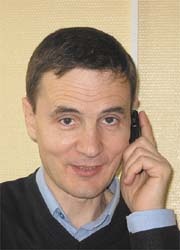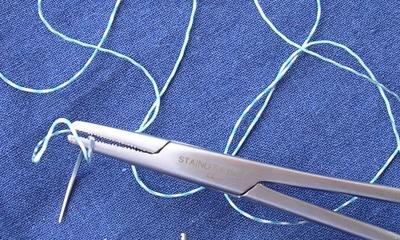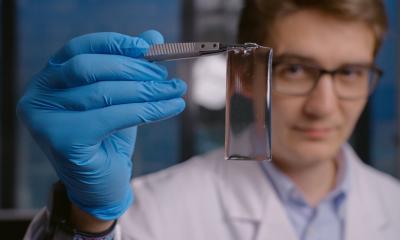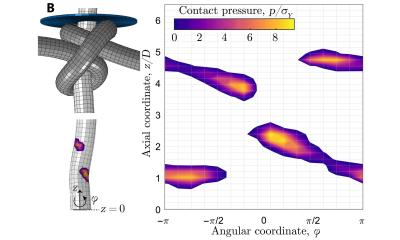Russia's specialist wound surgeon
Street fights, earthquakes or simply everyday life frequently produce infected wounds that only specialist surgeons can treat. EH Correspondent Olga Ostrovskaya interviewed Valerij Mitish, whose expertise borders on the unique
A meeting with Dr Valerij Mitish was difficult to arrange - every day he's at a different Moscow hospital.

Yesterday he carried out a complicated wound procedure in a children’s hospital; today he’s at the Military Institute, tomorrow it will be the Endocrinology Centre. He also heads the department of wound infection and wound surgery at the Moscow Research and Clinical Institute of Emergency Children’s Surgery and Trauma. In addition, Dr Mitish heads a team of Russian surgeons that helps in other countries following disasters, and is professor of disaster medicine at the Russian University of National Friendship. Between procedures at the Endocrinology Centre, we finally met.
Asked why he must change locations so often and whether the healthcare system is short of surgeons for infection he explained that specialists in infection surgery are a rarity. Why? Mainly due to the complexity of this kind of surgery: several phases (2, 3, 4 etc.) are required. ‘First we excise the wound; next plastic surgery must be implemented.’
Is he also a plastic surgeon? ‘Sure. To gain the best results in wound treatment, we believe the same doctor should stay with the same patient. 50% of our surgical work is plastic surgery. My colleagues totally manage the plastic skills – from simple ones to tissue micro transplantation. We must not only reconstruct the organ, but also its function and aesthetics.’
This is great! But why are do few surgeons want to become wound infection specialists? ‘Traditionally, in the Russian healthcare system, doctors regard this kind of surgery as a punishment – for poor studies, for bad work. Our specialty usually had the oldest equipment and patients are treated for several months – so it’s impossible to be paid big money here… And often you have to work with blasted tissue, stuffed with pus.’
So why is he a wounds surgeon? ‘It’s a very interesting specialty! I think I’m lucky to understand this. This was the USSR when I began to operate. I worked at the Vishnevskij Institute of Surgery, which was oriented towards military and disaster wounds. It was there, in the beginning of 70s, that the first wounds and wound infection department was set up. A strategy for active surgery was created – the surgeons didn’t wait for “ripening” of the wound to treat an abscess; they operated without wasting time. We also had a special air medical service and I flew to the furthest areas of Russia to treat the most complicated cases. As a result, I’ve gained great experience.’ Dr Mitish speaks with sadness. ‘We had an excellent system for treating difficult cases in every area of the country. We could get these patients to Moscow for follow-up treatment. We had 20-30-40 most interesting cases at the same time. It’s really sad that this system has now been destroyed.’
What can be done in the circumstances? ‘We try to share our experience with our colleges in different Russian locations, at congresses and in universities. In 2000, I lectured French surgeons in Paris about the treatment of osteomyelitis after trauma. A lot of surgeons come to my operations. Now we use the most advanced medical technologies to treat wounds. When we go to countries after earthquakes (in Pakistan, for example) our colleges from other countries can use our experience.’
This interests them? ‘Sometimes they say they can’t do such complex surgery back home, they say “you can do everything without us”. I think we have such rich experience because we have a lot of difficult cases after various situations in Russia: regional wars, explosions in our cities, knife and gun wounds delivered on the streets – a lot of really small disasters. And we can use this experience in treating fight wounds to treat common ones.’
01.07.2008





